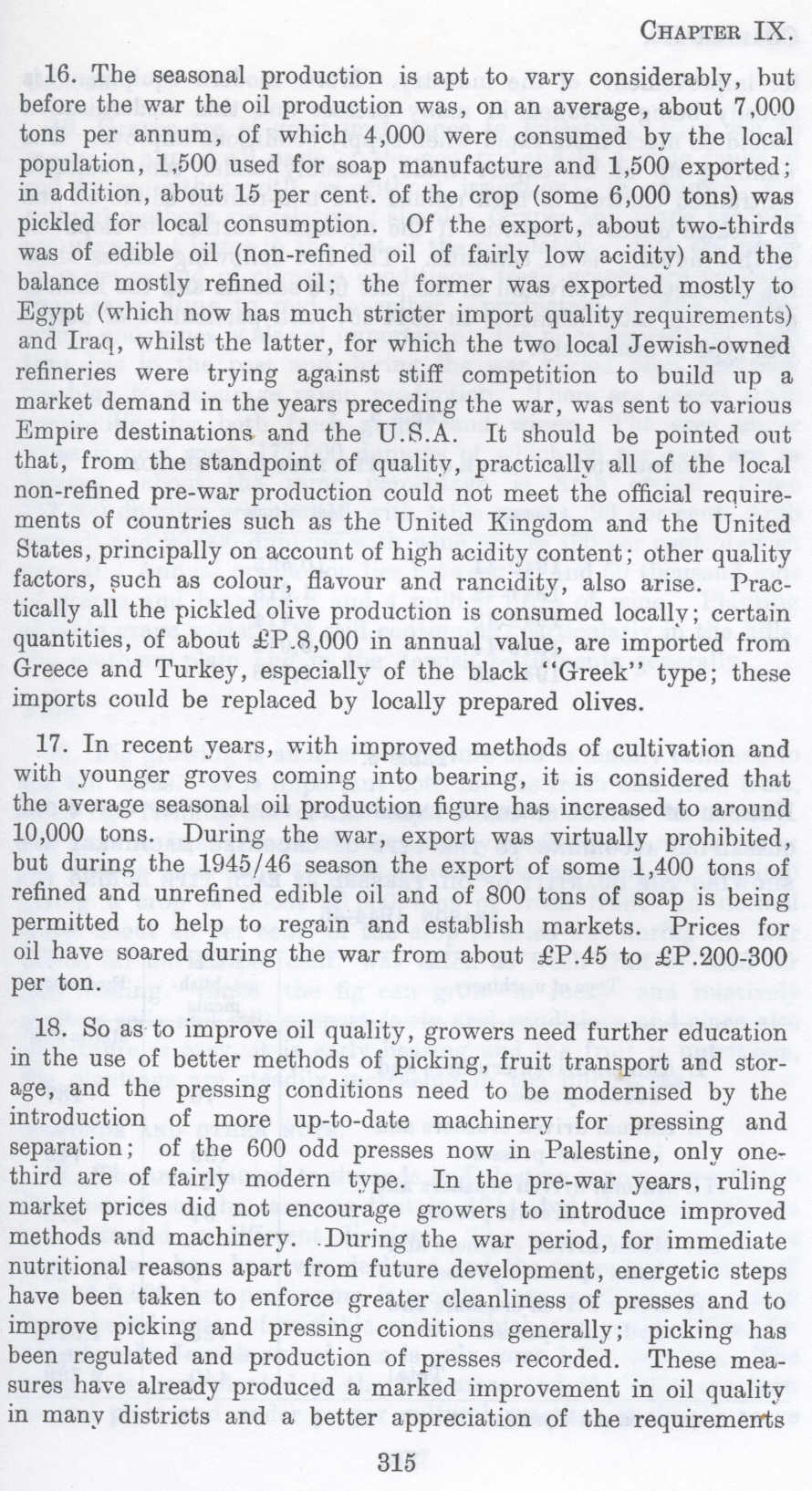| Prev | Next |  |
| Prev | Next |
| PalestineRemembered | About Us | Oral History | العربية | |
| Pictures | Zionist FAQs | Haavara | Maps | |
| Search |
| Camps |
| Districts |
| Acre |
| Baysan |
| Beersheba |
| Bethlehem |
| Gaza |
| Haifa |
| Hebron |
| Jaffa |
| Jericho |
| Jerusalem |
| Jinin |
| Nablus |
| Nazareth |
| Ramallah |
| al-Ramla |
| Safad |
| Tiberias |
| Tulkarm |
| Donate |
| Contact |
| Profile |
| Videos |
British Mandate: A Survey of Palestine: Volume I - Page 315 |
Disclaimer
The above documents, article, interviews, movies, podcasts, or stories reflects solely the research and opinions of its authors. PalestineRemembered.com makes its best effort to validate its contents.


Post Your Comment
*It should be NOTED that your email address won't be shared, and all communications between members will be routed via the website's mail server.
16. The seasonal production is apt to vary considerably, hut before the war the oil production was, on an average, about 7,000 tons per annum, of which 4,000 were consumed by the local population, 1,500 used for soap manufacture and 1,500 exported; in addition, about 15 per cent. of the crop (some 6,000 tons) was pickled for local consumption. Of the export, about two-thirds was of edible oil (non-refined oil of fairly low acidity) and the balance mostly refined oil; the former was exported mostly to Egypt (which now has much stricter import quality requirements) and Iraq, whilst the latter, for which the two local Jewish-owned refineries were trying against stiff competition to build up a market demand in the years preceding the war, was sent to various Empire destinations and the U.S.A. It should be pointed out that, from the standpoint of quality, practically all of the local non-refined pre-war production could not meet the official requirements of countries such as the United Kingdom and the United States, principally on account of high acidity content; other quality factors, such as colour, flavour and rancidity, also arise. Practically all the pickled olive production is consumed locally; certain quantities, of about £P.8,000 in annual value, are imported from Greece and Turkey, especially of the black "Greek" type; these imports could be replaced by locally prepared olives.
17. In recent years, with improved methods of cultivation and with younger groves coming into bearing, it is considered that the average seasonal oil production figure has increased to around 10,000 tons. During the war, export was virtually prohibited, but during the 1945/46 season the export of some 1,400 tons of refined and unrefined edible oil and of 800 tons of soap is being permitted to help to regain and establish markets. Prices for oil have soared during the war from about £P.45 to £P.200-300 per ton.
18. So as to improve oil quality, growers need further education in the use of better methods of picking, fruit transport and storage, and the pressing conditions need to be modernised by the introduction of more up-to-date machinery for pressing and separation; of the 600 odd presses now in Palestine, only one third are of fairly modern type. In the pre-war years, ruling market prices did not encourage growers to introduce improved methods and machinery. .During the war period, for immediate nutritional reasons apart from future development, energetic steps have been taken to enforce greater cleanliness of presses and to improve picking and pressing conditions generally; picking has been regulated and production of presses recorded. These measures have already produced a marked improvement in oil quality in many districts and a better appreciation of the requirements
Page 315